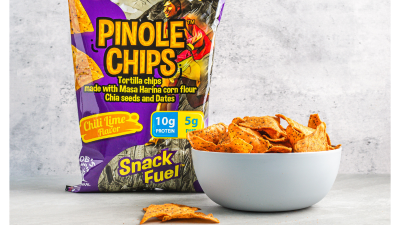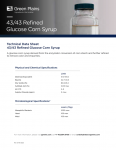Innovations in snacking
KIND embraces ‘AND’ philosophy for snacking innovation to balance health, taste, convenience & sustainability

“In the US, 40% of snacking occasions are driven by health and wellness, either from a desire to stay on track with health goals or from a desire to seek a health-driven boost or fuel-up during their day,” she told FoodNavigator-USA.
At the same time, she added, “Consumers are also demanding taste to go along with function. In years past, consumers gave functional foods ‘a break’ when it came to taste – as long as their snack was delivering on a meaningful functional benefit (high protein, high fiber, added vitamins and nutrients).”
To meet both demands, Strobel said, “KIND believes in the ‘AND’ philosophy – not having to choose between nutritious OR delicious. Every product we launch must be uncompromisingly delicious and lead with a nutritionally dense first ingredient.”
For example, she pointed to KIND’s new Soft Baked Squares launched earlier this year, which come in flavors like brownie and blondie, but also contain 14 finely ground almonds.
As KIND taps into more treat-forward occasions with its Soft Baked Squares as well as its Soft Baked Granola, that also launched this year, Strobel said the company has balanced its portfolio with the addition of products with more functional benefits as well.
“Most recently, we’ve launched a new platform across our bars and granola line called KIND Zero, which provides consumers with zero added sugar topics and is keto-friendly,” she explained.
To further help consumers balance health and indulgence, Strobel said KIND offers a range of product sizes, including several portion-controlled options such as its snack-sized Minis and Thins bars as well as the launch of its Grab n Go Granola this year.
Convenience expands to include at-home as well as on-the-go
By offering a variety of sizes and more grab-and-go options, KIND is also able to meet consumers’ evolving need for convenience, Strobel said.
“Consumers are often looking for convenient snacks, but the meaning and context of convenience has changed. Traditionally, convenient snacking meant ‘on-the-go’ – whether during a commute, on a break at work, or in the car on the way to a kid’s soccer practice. While this is still the case, we are seeing ‘on the go’ extend to at-home occasions as we settle into a ‘new normal’ where people might be running to the pantry for a quick snack to fuel up between work-from-home meetings,” she explained.
Snackers are becoming more adventurous
Beyond balancing health and indulgence, many consumers are looking for more adventure from their snacks, Strobel said.
“While we saw many consumers embrace familiar, comforting snacks during the pandemic (and snacks shoppers knew the entire family would eat while at home), flavor profiles are now pushing more boundaries – spicy, interesting fruits, inspired from international cuisines,” she explained.
‘Consumers care about sustainability,’ but also are confused by it
Consumers increasing want products that are not just better for them, but are also better for the planet, which means brands must think about how their products – and production – impact the climate.
“We know our consumers care about sustainability, but we also know that certain terms – like regenerative agriculture, and why it is important – can be confusing for consumers,” acknowledged Strobel.
That is why, she said, KIND seeks “to take the burden off our consumers when it comes to education around sustainable agriculture practices.”
For example, she explained, last April, KIND launched The KIND Almond Acres Initiative, “a 360-degree campaign educating consumers about regenerative agriculture in almonds, our #1 ingredient, in a way that is digestible, fun and interactive, including the first-ever Snapchat lens dedicated to regenerative agriculture in almonds.”
Strobel added that KIND’s Almond Acres Initiative is the company’s “first step towards our goal of sourcing 100% of our almonds from orchards leveraging regenerative agriculture practices on a mass balance basis by 2030.”
![[Video] “Functionality within snacking has just exploded,” Riverside Natural Foods CEO unpacks market trends](/var/wrbm_gb_food_pharma/storage/images/_aliases/wrbm_medium/publications/food-beverage-nutrition/foodnavigator-usa.com/news/manufacturers/video-functionality-within-snacking-has-just-exploded-riverside-natural-foods-ceo-unpacks-market-trends/17033433-1-eng-GB/Video-Functionality-within-snacking-has-just-exploded-Riverside-Natural-Foods-CEO-unpacks-market-trends.png)




















